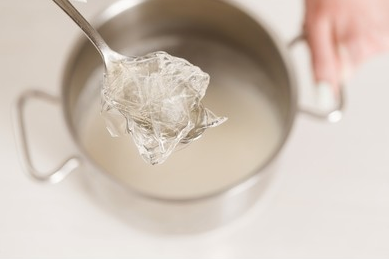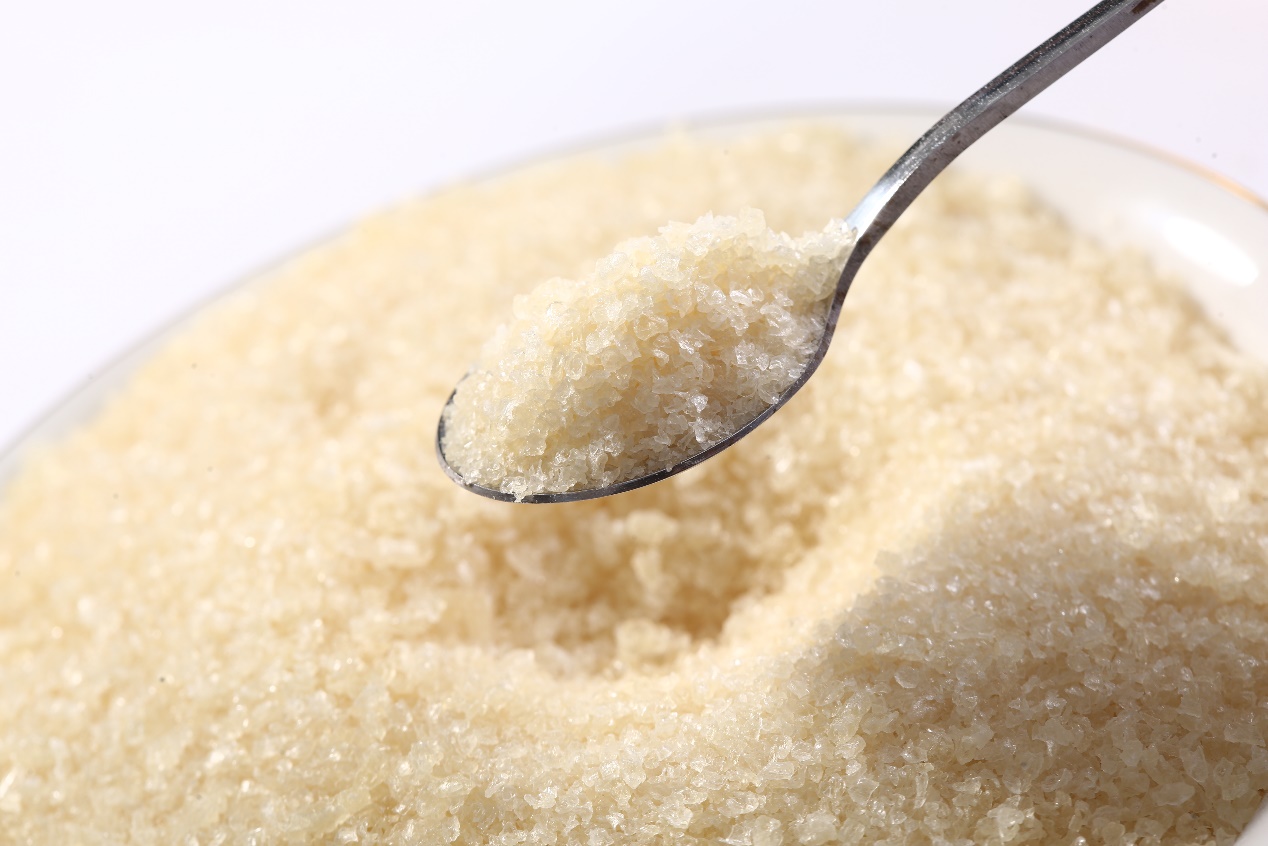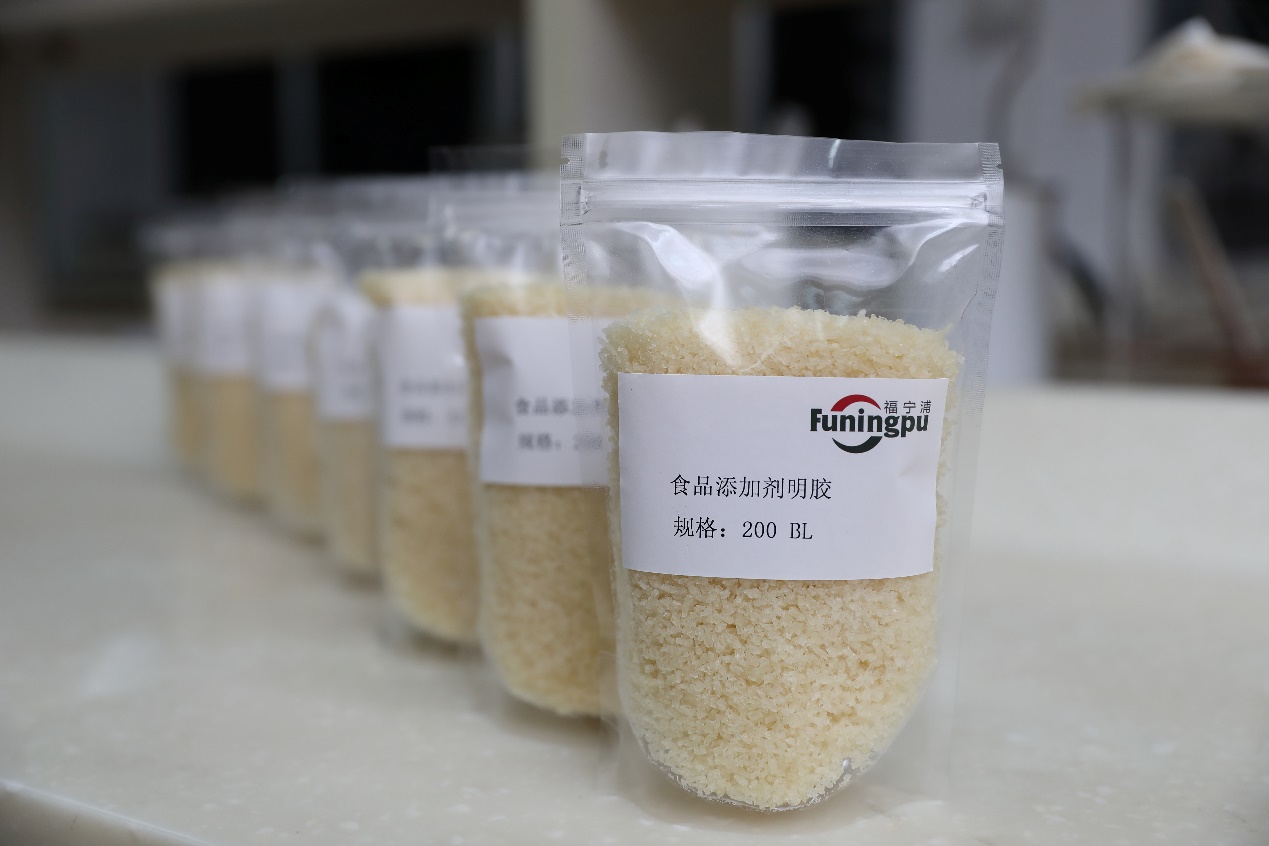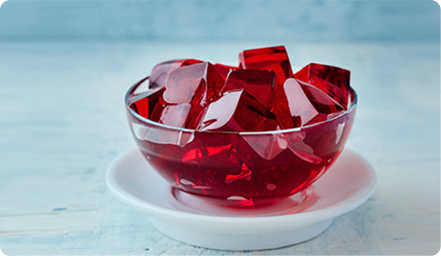-
July, 26,2025
Understanding the Role of Bloom Strength in Soft Gelatin Capsules
-
July, 25,2025
Bloom Strength and Its Impact on Hard Gelatin Capsules
-
July, 21,2025
How Gelatin Is Revolutionizing Pet Food: A Healthier Option for Dogs
-
June, 22,2025
Collagen as a Trusted Ingredient: Meeting Global Demand with Reliable Supply
Gelatin vs Agar: Key Differences, Uses, and Choosing the Best Option
Gelling agents like gelatin and agar are important in the food, pharmaceutical, and health products industries. They are ingredients that are used for making such foods as desserts, supplements, and microbiological culture media. or businesses, sourcing these materials from reliable gelatin manufacturers ensures quality and consistency in their products. However, the questions "Gelatin vs. Agar: Which is better? " or "What is the difference between agar and gelatin?
The article looks in depth at these two ingredients: their properties, differences, and which one is best for B2B buyers seeking efficient and competent gelling agents.
Agar vs. Gelatin: Understanding Gelling Agents
Both agar and gelatin find applications as gelling agents in industries such as food processing, pharmaceuticals, and microbiology. However, they are derived from different sources and have different properties, making them amenable to different uses.

What Is Agar?
Agar is a plant-based gelling agent derived from red algae or seaweed, specifically species like Gelidium and Gracilaria. It has been broadly used both in the field of Asian cuisine and in microbiological research for a considerable time.
Key Features of Agar:
- ·Vegan and Plant-Based: Being a seaweed derivative, agar is suitable for consumption by vegans and vegetarians.
- ·Heat-Stable: Agar can resist high temperatures without any loss in its gelling capability.
- ·High Gelling Strength: It forms a firm gel, often used in products requiring rigid texture.
- ·Neutral Flavor: Agar has a mild taste, making it suitable for various culinary applications.
Agar is often used in desserts like jelly and puddings, as well as in laboratories as a medium for growing microorganisms.
What Is Gelatin?
Gelatin is a type of animal-origin gelling agent obtained by hydrolyzing collagen from skin, bones, and connective tissues of animals, such as bovine or porcine sources. This has been one of the traditional products in the food, pharmaceutical, and health sectors due to its peculiar characteristics.
Salient Features of Gelatin:
- ·Extracted from Collagen: Being a protein-rich extract, gelatin is highly nutritious.
- ·Thermo-reversible means that, unlike agar, gelatin gels can melt and reset multiple times, making it far more versatile.
- ·Soft and elastic in texture, it forms a smooth, melt-in-your-mouth consistency when applied in such confections as marshmallows and gummies.
- ·Health Benefits: Gelatin is made up of amino acids, including glycine and proline, which support the joints and skin.

Gelatin has a wide range of applications in desserts, pharmaceutical capsules, and health supplements like collagen peptides. For businesses, sourcing from trusted suppliers offering gelatin powder wholesale ensures access to high-quality ingredients at competitive prices.
Agar vs. Gelatin: Key Difference
Yet despite such similarities in functions, the two vary greatly in origin, texture, application, and health benefits. Below is a comparison based on how the two compare to enable you to make your decisions for business needs.
Gelatin vs. Agar: Health Benefits
Nutritional Profile
- ·Gelatin: Gelatin is rich in proteins and amino acids, promoting joint health, skin elasticity, and gut health. The content of collagen in gelatin makes it a staple for health-conscious consumers.
- ·Agar: Low in calories, but low in basic nutrients, like all gelatinous substances; however, it contains a high amount of fiber, which helps in digestion.
Dietary Suitability
- ·Agar: Being derived from plants, it finds a place in vegan and vegetarian diets.
- ·Gelatin: Since it is an animal by-product, it targets the non-vegan population, yet it is much healthier.
Both are useful, yet gelatin has a distinctive nutritious advantage for products aimed at health and wellness markets.
Gelatin vs. Agar: Texture
The texture is a significant factor in many applications, especially food and pharmaceutical.
- ·Gelatin: The gel derived is soft, smooth, elastic, and melts in the mouth. Its flexibility is excellent for giving form to mousse, jelly candies, and marshmallows.
- ·Agar: It creates a firmer, brittle gel that resists melting. It is therefore most useful for structural use in plant-based jellies or for microbiology plates.
Gelatin's melt-in-the-mouth quality often makes it a preferred choice for confections and desserts.
Agar vs. Gelatin: Applications
Food Industry
- ·Gelatin: Used in gummies, marshmallows, panna cotta, and meat aspics.
- ·Agar: Common in vegan desserts like jelly, and puddings, and as a thickener in soups.
Pharmaceutical Industry
- ·Gelatin: Forms the basis of hard and soft capsules owing to its compatibility with human digestion.
- ·Agar: Rarely used in pharmaceuticals but finds applications in microbial culture media.
Microbiology
- ·Agar: A routine medium of bacterial and fungal cultures in the laboratory.
- ·Gelatin: Used in older methods in microbiology; replaced almost entirely by agar.

Wherever there is a need for an industrially thermo-reversible gel, gelatin is more versatile than agar. For businesses prioritizing versatility and superior nutritional benefits, Funingpu’s gelatin products deliver unmatched performance in confections, supplements, and pharmaceutical applications.
Which Is Better: Agar or Gelatin?
A choice between agar and gelatin will depend on a specific business vision, target market, and product needs. We try answering some questions to guide your decision.
Can You Substitute Agar for Gelatin?
Although agar can be used instead of gelatin in some recipes, the difference in texture and melting properties can make a difference in the final product. Agar's brittle texture and higher setting temperature are not suitable for all types of recipes where gelatin is used, especially in confections.
Examples:
- ·Gelatin: Soft candies and creamy desserts.
- ·Agar: Stiff jellies and vegan-friendly food.
This might not be the best approach for B2B manufacturers dealing in food or pharmaceuticals; therefore, product testing would be required.
Agar vs. Gelatin for B2B Customers
Cost Considerations
- ·Gelatin: Overall, more inexpensive, especially when purchased in bulk from trusted suppliers like Funingpu.
- ·Agar: More expensive, given the process of extracting it and its plant origin.
Market Demand
- ·Gelatin: This is generally demanded in the world market for its versatility and nutritional benefits.
- ·Agar: This has limited demand, basically in niche markets involving vegan or vegetarian consumers.
Industrial Applications
- ·Gelatin: Preferred for capsules, protein supplements, and diverse culinary uses.
- ·Agar: Best for laboratory settings and plant-based food products.
For B2B buyers in the health, food, or pharmaceutical sectors, gelatin’s broader applications and cost-effectiveness make it the superior choice.
For B2B customers, partnering with a reliable supplier is critical. Funingpu offers competitive pricing for bulk gelatin orders, along with global certifications that ensure compliance with diverse market regulations. Whether you're in the food, health, or pharmaceutical industry, Funingpu delivers quality and consistency tailored to your needs.

Final Thoughts
Both gelatin and agar are important gelling agents with different characteristics. However, for the food, pharmaceutical, and health industries, gelatin may hold a special place due to its versatility and nutritional value, especially when considering the cost involved. Partnering with a trusted edible gelatin manufacturer is essential to ensure product quality and performance.
At Fujian Funingpu Biotechnology Co., Ltd, we focus on the quality of gelatin products for B2B needs. Certifications like ISO, GMP, and Kosher make Funingpu guarantee constant, reliable, and quality gelatin solutions for global markets.
FAQs
1. Is agar the same thing as gelatin?
No, agar and gelatin are not the same thing. Agar is plant-based, while gelatin is animal-based, from collagen. They differ in texture, nutritional value, and application.
2. What is the difference between agar agar and gelatin?
Agar forms a firm, brittle gel, whereas gelatin makes a soft, elastic gel. Agar is vegan, while gelatin is from animal sources and is highly packed with proteins.
3. Can agar take the place of gelatin in all recipes?
No, agar cannot replace the texture and especially the thermo-reversible properties of gelatin, mainly in the field of confectionery and creamy desserts.
4. Which one is healthier, agar or gelatin?
Gelatin is healthier because it contains collagen, which keeps the joints, skin, and gut healthy. Agar has fewer calories and is rich in fiber.
5. Why choose Funingpu for gelatin supplies?
Funingpu provides premium gelatin with global certifications, ensuring quality and reliability for diverse B2B applications.
Phone: +86-577-88105990
Mobile: +86-138 5886 1938
Official Website: www.fnp-gelatin.com
Email: sales@funingpu.com
Address: No. 1-10 Wenpu Road, Yacheng Town, Xiapu County, Ningde City, Fujian Province




